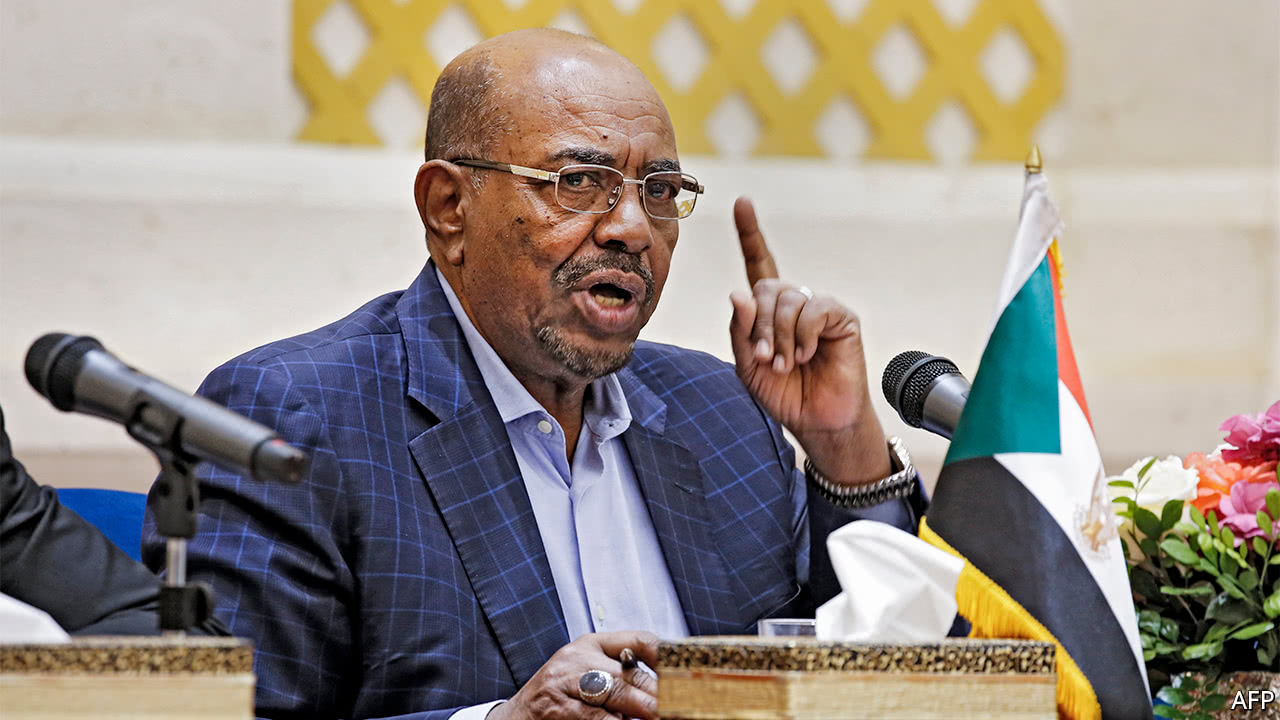Date: Friday, 14 July 2017
Faced with a complex choice about an unfamiliar country, the president stalls

FIRST came the Iran nuclear deal; then the Cuban thaw. But less remarked upon at the time was Barack Obama’s rapprochement with another old foe: Sudan, whose president, Omar al-Bashir, is wanted by the International Criminal Court on charges of orchestrating genocide. In January Mr Obama temporarily lifted economic sanctions on Sudan that had first been imposed 20 years ago by Bill Clinton. The move was a reward for “positive actions” by Sudan. The regime has co-operated with America in fighting terrorism, allowed more aid workers to reach civilians hurt in Sudan’s conflict zones and tried to end its wars with rebels in the south. Yet the decision on whether to end sanctions permanently fell to Mr Obama’s successor.
On July 11th Donald Trump ducked the decision for another three months, with an executive order saying he wants to see “sustained progress”. America’s intelligence agencies, and some of its allies such as Saudi Arabia, had pushed hard for an easing of economic restrictions. They see Sudan as a useful ally in the fight against jihadism. Many in the State Department had also concluded that sanctions were not working.
Yet the conflict in Darfur and the oppression of Christians in the south by an Islamist regime in Khartoum have forged an unlikely alliance in America between liberals (one of Mr Bashir’s most strident critics is George Clooney, an actor) and Christian conservatives. On June 30th 53 congressmen from both parties wrote to Mr Trump urging him to delay the decision on sanctions for another year, citing “state-sanctioned persecution of Christians and the denial of freedom of religion”.
The new executive order offers something to please both groups. It contains an explicit reference to human rights and to religious freedom. Eric Reeves of Harvard University, a fierce critic of Mr Obama’s policy of reconciliation with Sudan, thanks the “extraordinary advocacy efforts” of those lobbying against sanctions relief for this change. He argues that ending the embargo would strengthen a regime he thinks is beyond redemption. He may be right. The regime has stopped bombing rebels and now allows aid into many previously inaccessible areas. It also appears more or less to have stopped meddling in neighbouring South Sudan, which seceded in 2011 and is in the grip of bloody civil war. But allegations of war crimes, including the use of chemical weapons last year, persist. And Sudan does not obviously respect human rights more than it used to.
Those who favour lifting sanctions fret that the delay will push Mr Bashir’s government to turn its back on the West and on the reforms it had been pursuing. “They may feel that the goalposts have been moved again,” says Magnus Taylor of the International Crisis Group. On July 12th Sudan issued a statement saying that the country has frozen negotiation with America in response.
Yet Mr Trump’s delay may be about far more than his unwillingness to pick a fight with Christian conservatives over an issue in which he has never shown much interest. It also provides more evidence, if that were needed, that his administration lacks the know-how to weigh competing policy options in far-off places. Mr Trump has yet to appoint an assistant secretary of state for African affairs or a special envoy to Sudan and South Sudan. In all, five of the eight most senior posts in the department’s Bureau of African Affairs are vacant or filled by people in an acting capacity. The government “has simply kicked the can down the road”, says Harry Verhoeven of Georgetown University. “There appears to be little or no Sudan strategy and no deep thinking about how to move ahead.”